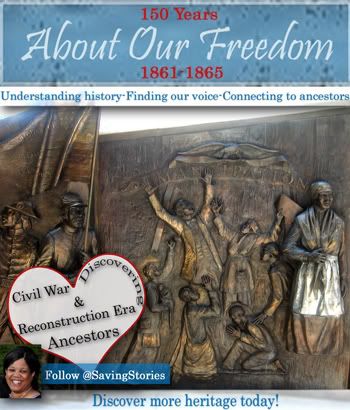Since my move to South Carolina, I have had occasion to participate in Watch-Night Services where I have come to appreciate this tradition which some say began just before the signing of the Emancipation Proclamation.
New Year's Eve services were celebrated in the 1700's when John Wesley started them. Some claim that they were first celebrated by slaves in 1862 as they waited for the enactment of the Emancipation Proclamation on New Year's Day in 1863.
There is no doubt Watch-Night Services took on a greater significance after January 1, 1863. I am still coming to appreciate the importance placed on this evening. As the evening draws near, of all the things that I could reflect upon, my thoughts turn once again to freedom and what it must have been like for my ancestors on the last eve of 1862 to realize that the next day they would in reality begin to move beyond the concept of freedom. They would have to wait a few years more to actually experience freedom.
I am sure they must have grown more anxious each year until 1865. I wonder if they ever doubted it would happen. Did they fear Lincoln would change his mind? What did they feel? Joy? Did they have any concerns?
I discovered an account of a traditional Watch Meeting. This account is the most detailed that I have yet seen. Some of the rituals are similar to the services I have attended in recent years. While I had heard of these types of services in the North, no one ever explained how they originated. So, I am unable to compare anything to the ones I have attended in the South.
Watch-Services are a significant part of our heritage, and my experiences have definitely helped me to put myself in the place of my ancestors and what it must have been like for them to celebrate in anticipation of the coming year. We wonder as the old year goes out and the new one comes as well, however, our objectives pale in comparison to theirs. I know I am not even able to comprehend how it must have felt to wonder if they would be able to exercise at year's end the freedoms I take for granted.
You can read the complete account of a Watch Meeting below on pages 151-154 of "The Southern workman and Hampton school record, Volume 28 By Hampton Normal and Agricultural Institute (Va.)" Prayers and hymns are included.
New Year's Eve services were celebrated in the 1700's when John Wesley started them. Some claim that they were first celebrated by slaves in 1862 as they waited for the enactment of the Emancipation Proclamation on New Year's Day in 1863.
There is no doubt Watch-Night Services took on a greater significance after January 1, 1863. I am still coming to appreciate the importance placed on this evening. As the evening draws near, of all the things that I could reflect upon, my thoughts turn once again to freedom and what it must have been like for my ancestors on the last eve of 1862 to realize that the next day they would in reality begin to move beyond the concept of freedom. They would have to wait a few years more to actually experience freedom.
I am sure they must have grown more anxious each year until 1865. I wonder if they ever doubted it would happen. Did they fear Lincoln would change his mind? What did they feel? Joy? Did they have any concerns?
I discovered an account of a traditional Watch Meeting. This account is the most detailed that I have yet seen. Some of the rituals are similar to the services I have attended in recent years. While I had heard of these types of services in the North, no one ever explained how they originated. So, I am unable to compare anything to the ones I have attended in the South.
Watch-Services are a significant part of our heritage, and my experiences have definitely helped me to put myself in the place of my ancestors and what it must have been like for them to celebrate in anticipation of the coming year. We wonder as the old year goes out and the new one comes as well, however, our objectives pale in comparison to theirs. I know I am not even able to comprehend how it must have felt to wonder if they would be able to exercise at year's end the freedoms I take for granted.
You can read the complete account of a Watch Meeting below on pages 151-154 of "The Southern workman and Hampton school record, Volume 28 By Hampton Normal and Agricultural Institute (Va.)" Prayers and hymns are included.



























